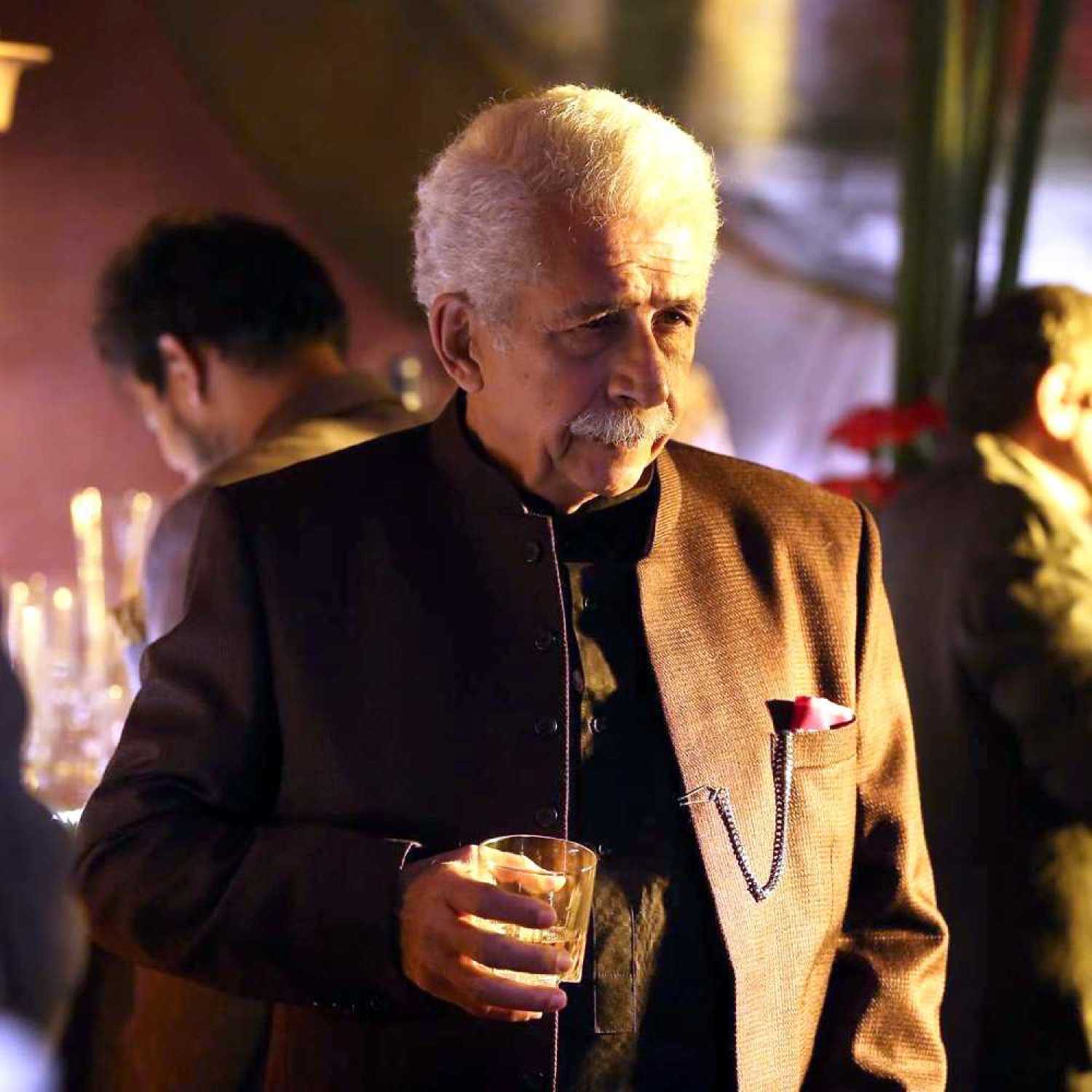The cast and crew of The Hungry gathered after its Asian premiere at the 19th Mumbai Film Festival on 14 October at a question and answer session.
Naseeruddin Shah: I love playing evil characters, they are much more interesting
Mumbai - 16 Oct 2017 10:00 IST
Updated : 13:25 IST


Sonal Pandya
After a world premiere at the Toronto International Film Festival and a European premiere at the BFI London Film Festival, The Hungry made its Asian bow at the 19th MAMI Mumbai Film Festival.
The film’s cast and crew, including director Bornila Chatterjee, co-writer Tanaji Dasgupta, artistes Naseeruddin Shah, Tisca Chopra, Sayani Gupta and Karan Pandit, and production designer Aradhana Seth were at hand to answer a few questions from the audience after the screening.
Shonali Bose, filmmaker and aunt of co-writer Tanaji Dasgupta, was the moderator for the Q&A session and introduced the film to the audience. She also has a connection with Bornila Chatterjee. Bose’s film Margarita With A Straw (2014) was filmed in New York at Chatterjee’s workplace when she was working on the script for The Hungry.
Co-writer and director Bornila Chatterjee was asked how the film came to be. “In 2015, we heard that Cinestaan [Film Company, a sister company of Cinestaan Digital Private Limited, which runs this website] and Film London were organizing a workshop to celebrate 400 years of Shakespeare where they were going to fund one Indian adaptation. Tanaji and I started brainstorming which play we wanted to adapt,” she said.
Chatterjee wanted to adapt A Midsummer Night’s Dream while Dasgupta wanted to adapt Titus Adronicus as he felt it was more relevant to today’s world. “What really struck me when I read it was kind of this emotional rollercoaster that [Shakespeare] takes Tamara and Titus on,” Chatterjee said.
Chatterjee and Dasgupta also felt Tamara (Tulsi in The Hungry) isn’t really given her due and they tried to explore that in their film. In fact, Chatterjee said they took great liberties with the play. The Hungry is a loose adaptation of Titus Andronicus.
When one member of the audience asked if the use of marigolds as wedding decoration was in reference to Mira Nair’s film Monsoon Wedding (2001), Dasgupta said, “One of the reasons why we won the grant [was because] we had a great pitch. And the last line was, ‘Imagine Monsoon Wedding gone horribly wrong’.”
Bose asked the artistes about playing such dark characters and humanizing them. Naseeruddin Shah, who plays the ruthless patriarch Tathagat Ahuja, said, “The fact that you empathize with both the characters is not the actor’s doing actually, it is in the script. That was so wonderful about it. Normally, you get to play black characters without any redeeming features whatsoever. Here, it’s almost as if the writer was looking at the events through [their] eyes. If the character is so well-etched, then all the actor has to do is embody the character."
Further, Shah added, it was “delightful”. “I love playing evil characters. They are much more interesting than the good characters, also more fun. When this kind of a character has this kind of an undercurrent of what is going on through his head, it makes it even more fun,” he said.
Tisca Chopra, who plays Tulsi, elaborated on the uniqueness of her role. She said, “It’s not very often that you get to play a character like this. I have done a variety of mothers, but this was a mother unlike any other. That was the delicious part of playing it."
Chopra added that the world in the film “is so much a reality of what we see around us”. She herself has seen that violent part of India. A classmate at her school in NOIDA was kidnapped when they were in standard VIII. She never saw her classmate again. Her father, who was principal of a school, was assaulted by eight strangers in his own office; they broke his arms and legs. It was at the behest of a legislator.
At the end of the session, Bose made an impassioned statement on the current state of Indian cinema. “We are now used to seeing fantastic Indian cinema," she said. "It makes me so proud to be an Indian filmmaker today. We are at an incredible place in our industry where such exciting talent can be seen and appreciated all over the world. But, most importantly, it must be appreciated in our own country.”





